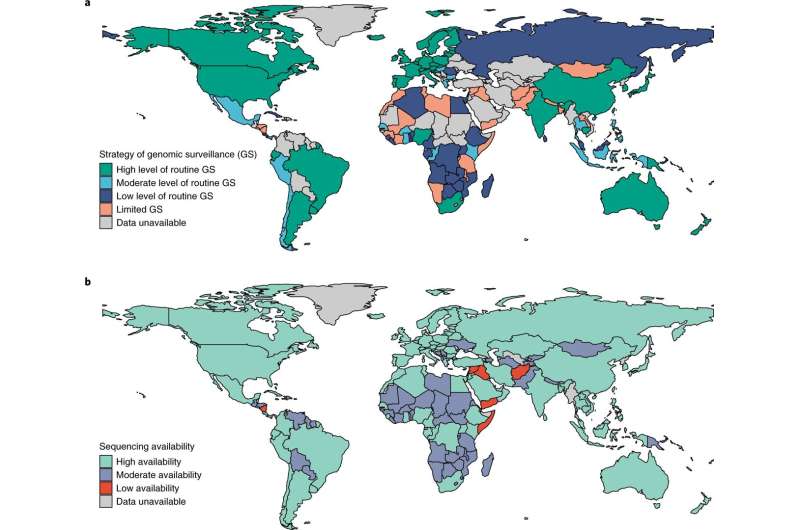March 30, 2022 report
Global analysis of SARS-CoV-2 genomic surveillance and data sharing shows lags in tracking new variants

A team of researchers from China, the U.S. and Switzerland has found via a global analysis of SARS-CoV-2 genomic surveillance and data sharing that more needs to be done to track the appearance of new variants. In their paper published in the journal Nature Genetics, the group describes their surveillance methodology, their characterization of the circulation of prior variants, and what they learned about the current degree of sharing throughout the international medical community.
As the global pandemic has persisted, scientists around the world have banded together to develop vaccines to prevent infection and therapies to treat those who have become infected. They have also instituted genomic surveillance as a means to identify the emergence of new variants. Such efforts allowed the global community to respond when the alpha and delta variants emerged.
Surveillance efforts involve obtaining samples of the SARS‑CoV‑2 virus and genetically sequencing them to determine their strain. This information is entered into a database and shared with others. In this new effort, the researchers looked at the degree of surveillance in countries around the world and how much of the information obtained from such efforts is being shared.
The work involved analyzing sequencing and reporting records from countries around the world since the beginning of the pandemic. The researchers found that both sequencing and reporting vary greatly by country. They found 45 countries that were surveilling at a high level, and 96 countries that had high availability of surveilled sequencing data. But they also found gaps. Some entities were not conducting sequencing, and others were sequencing but were not sharing their results. They suggest improvements to the system via assisting countries that cannot afford to conduct surveillance operations. They also note that some labs or political leaders have been reluctant to share data due to negative repercussions—reporting a new strain has thus far led to other countries closing their borders to people from the reporting country.
More information: Zhiyuan Chen et al, Global landscape of SARS-CoV-2 genomic surveillance and data sharing, Nature Genetics (2022). DOI: 10.1038/s41588-022-01033-y
© 2022 Science X Network




















